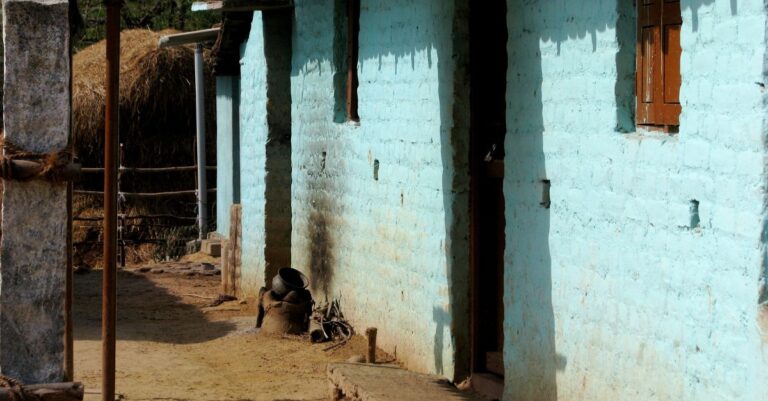By Ram Puniyani
Two young men entered the new Parliament complex, breaching multiple layers of security, jumped from the visitors’ gallery, and sprayed a yellow gas, creating a ruckus in the house on 13 December 2023. The plan was hatched by four of them to voice their plight. Among them, one was an e-rickshaw driver, one a farmer, one a Government job aspirant and one a daily wager. Pratap Simha, a BJP MP from Karnataka, gave them the visitors’ pass. The two who entered the Parliament had hidden the spray bottle in their shoes. It was on the anniversary of the terror attack on Parliament by terrorists in 2001, on the day when Parliamentarians had paid tribute to the martyrs of the attack.
The group that planned this included a girl, Neelam Azad, a post-graduate and a Sagar Shinde, who were spraying gas outside the Parliament around the same time. Neelam is from Haryana’s Jind and has many degrees to her credit, including an M. A., M. Ed., and M. Phil. and has also cleared the National Eligibility Test, despite which she could not get a job. They shouted slogans against dictatorship and for the protection of the Constitution (Tanashahi Khatam Karo, Samvidhan ki Raksha Karo); they drew attention to unemployment and shouted Bharat Mata Ki Jai and Vande Mataram.
These youth were part of a social media group called the “Bhagat Singh Fans Club.” They came in contact with each other through this online platform. Their inspiration came from the socialist revolutionary Bhagat Singh’s similar actions in the Central Assembly hall in 1929. One might recall that Bhagat Singh, with his friend Batukeshwar Datt, had thrown a bomb from the visitors’ gallery, careful that nobody would be hurt. They also threw leaflets against British colonial rule in the assembly.
The action of these youth, who have been booked under UAPA, is a potent attempt to bring the issue of rising unemployment to national attention. To recall, Bhagat Singh and his comrades resorted to this method as they knew the media would not carry their voice. There is an uncanny similarity to the present situation where the ‘mainstream’ media, appropriately called ‘Godi Media’, is totally apathetic to the concerns of ordinary people. The problems of rising prices, a decline in the Hunger Index, and increasing unemployment have not been a concern.
When Modi campaigned in 2014, the BJP promised to create 2 Crore jobs yearly. The reality has been quite the opposite. The first significant blow to the employment situation came with demonetisation, where crores of workers in the small-scale and rural sectors lost their jobs. The ruling government has been under the influence of big Corporations, and the creation of new jobs has been put on the back burner. Some bigwigs (Narayana Murthy) are lobbying for a 70-hour work week. In most of the unorganised sectors, working hours have gone up from 8 hours per day to 12 hours per day.
A report in The Economic Times points out that “The overall rate (of unemployment) rose to 10.05% last month from 7.09% in September, data from the Centre for Monitoring Indian Economy Ltd. showed, the highest since May 2021. Rural unemployment jumped to 10.82% from 6.2%. In comparison, the urban rate eased slightly to 8.44%”. Also, The same paper on 1 November 2023 reported, “Last month, Indian tech-services outsourcing firms, including Infosys Ltd. and Wipro Ltd., announced plans to halt hiring of college graduates, potentially leaving thousands of fresh engineering students without jobs.”
This is taking place in a context where space for democratic protests is shrinking; the Universities are preventing student union elections and blocking seminars deemed critical of Government policies.
While it is an open and shut case of frustrated students-youth expressing their anguish through the wrong means, the ruling government has put UAPA-like oppressive charges against them. While Rahul Gandhi attributed it to the rising unemployment and prices, the Home Minister has not made any statement in Parliament despite the opposition demanding it. Prime Minister Modi, rather than seeing the obvious, stated that this act is an alarming breach and there is a need to find the elements behind it. The chink in the armour of the security system in Parliament has been exposed, proving vulnerable to even minor attempts like that of these youth. On the other hand, there is a need to address unemployment rather than distract attention by terming it a conspiracy.
Clearly, these youth are not part of any terror group. Mercifully, none of the involved youth is a Muslim or from any other “terror-related organisation”. The latter would have given an unfortunate boost to the efforts of those out to intensify Islamophobia.
The youth have again emphasised that paying lip service to Bhagat Singh is insufficient. His concern for the deprived sections of society needs to be brought to the fore. Let us remember that Bhagat Singh’s message of mass movements was central to his ideology. He abandoned the path of violence soon enough. He had concluded that we can achieve independence only through mass mobilisation. His act in the Central Assembly of throwing the bomb was meant only to make the ‘deaf hear’ and not to kill anybody. It is heartening to note that our youth are turning to Bhagat Singh for guidance in these troubled times and that many groups in the name of Bhagat Singh have sprung up.
Unlike Godi Media’s attempt to look for villains in the piece, the whole episode should be taken in the proper spirit. The aim of youth is transparent; their inspiration is not from any terrorist ideology but from one of the greatest revolutionaries of our freedom struggle.
The youth adopted the wrong method without any doubt. However, the anguish that led to these actions should be recognised, and the message of revising our ‘employment generation’ policy needs to be given a fresh and earnest look rather than trying to find some conspiracy.




